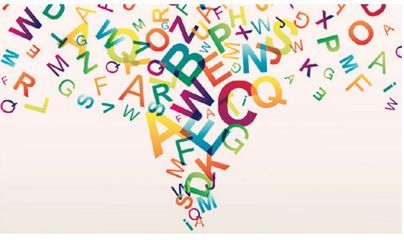2019-12-11 14:16:25来源:尚七网综合
在学英语的时候,你是不是经常会被告知要这样做:
想学好英语(尤其是口语),你就一定要多和native English speakers(英语母语的人) 沟通。
这个观点受到了很多英语学习者的追捧,甚至都要赶超“出国留学”的观念了!
那么这个观点正确吗?和什么样的native speakers交流,才能提高英语?今天,小编就来和你好好说说。

1.和native speakers交流,对学英语有帮助?
Why do we think this is true? Well, it seems logical.Many believe that the language belongs to the native speakers, so if we want to speak it ‘correctly’ we must speak English with them, right?However, this idea is a barrier to the reality that languages are not so black and white. Especially English because it is the global language for communication.
同英语母语者对话真的对学习英语有帮助吗?逻辑上似乎是合理的。很多人认为如果想地道地说英语,当然要同英语母语者对话,因为英语母语者创造并一直在使用英语。但,语言运用没有明确的对错之分,尤其是作为国际通用语——英语。
Languages are fluid and evolving. There is no perfect way to speak them. Native speakers bend the rules, and usually we do NOT care if learners make mistakes, as longas we can understand them.
语言是多变的,在不断进化。没有什么所谓的,能完美地运用一门语言的说法。事实上,(在日常生活中)人们也不在乎语言学习者是否会犯错误,只要大家可以相互理解就可以了。
试想一下:
你和一个学中文的外国人聊天,如果他犯了中文语法错误,你会生气吗?我想你肯定不会生气。
English learners can succeed in getting real fluency without ever living abroad or speaking with anative speaker.
所以,英语学习者并不需要在海外生活或者与英语母语者交流才能把英语学好。
误区1:natives speak的英语才地道(×)
2.与native speaker交流的认识误区
真相2:英语是一门国际语言(√)
English is used in virtually allcross-cultural interactions, like business and tourism. In fact, there are twice as many non-native English speakers than natives!For this reason, it would be foolish to have a goal of only speaking with native speakers. You need to have a global perspective, and be able to communicate with people from any country, despite their accent.I would even argue that we are evolving beyond needing to choose between learning American or British English. Soon, students will learn global English.
英语作为国际语言广泛应用于商务,旅游,跨文化交流等用途。事实上,使用英语的非母语者人数是英语母语者人数的两倍。单单是这个原因,一心想着和本地人讲英语,这个想法是不切实际的。我们需要有国际化视野,可以和任何一个国家的人用英语沟通,即使他们会带有口音。我甚至觉得,将来学英语的人(可能)不会再纠结是学习英音还是美音。大家(将要)学习国际化的英语。
误区2:natives speak能纠正错误(×)
真相2:“输入”和“输出”更重要(√)
有一些学英语的小伙伴,会觉得不和英语母语者交流,就无法提高自己的英语理解能力。但,如果你英语听力,词汇,语法,或者是发音有问题,单纯地与英语母语者交流并不能解决。
Not having native speakers around is NOT avalid excuse not to improve your English.A good teacher’s job is not to make you learn. A good teacher is your guide on the path to fluency. But it is up to YOU to walk the path.
身边没有英语母语者不是英语说不好的借口。一个优秀的老师不是强迫你去学习,而是引导你如何流利地用英语表达自我。能达到怎样的一个程度,完全取决于你自己。
The most valuable part of speaking with someone from the U.S.A., U.K., etc. is that you get to hear the language as it is spoken in that country. NOT that you will get your mistakes corrected. In my experience, unless it is a teacher that you are paying, it is unlikely that anative speaker will correct your mistakes.
与美国人,英国人等英语母语者交流,可以使你更了解美音,英音,不能寄望于他们给你纠正错误。根据我个人的经验,除非你花钱请老师,否则英语母语者都不大可能帮你纠正错误。
That is why the difference between input(reading, listening) and output (writing, speaking) is so important.
这就是为什么“输入”和“输出”变得这么重要。
什么是输入/输出
When improving our speaking is the goal, listening is especially important to absorb how the language is naturally spoken.The wonderful thing about English is that there are tons and tons of resources for input that are easily accessible for anyone. You can listen to podcasts and radio and watch TV series and movies(learn more here).
如果你想提高你的口语能力,多听是最好的“输入”方式,因为它可以让你感受这门语言最自然的表达方式。学习英语的一个好处就是你有数不尽的资源可以去利用,譬如听播客、广播、电视剧、电影等。